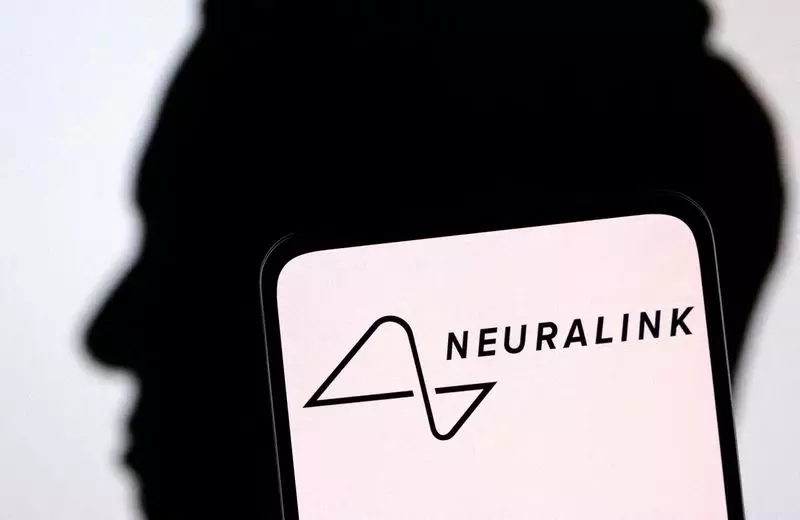Elon Musk’s groundbreaking brain-chip startup, Neuralink, recently livestreamed a monumental moment – their first patient successfully implanted with a chip that enabled him to play online chess using only his mind. Noland Arbaugh, a 29-year-old individual paralyzed below the shoulder due to a diving accident, showcased the incredible capabilities of the Neuralink device by effortlessly controlling a computer cursor with his thoughts. This innovative implant has the potential to empower individuals by allowing them to interact with computers solely through their minds.
Arbaugh, who received the implant in January, demonstrated impressive progress, sharing his experience in a video streamed on Musk’s social media platform X. He expressed his gratitude for the newfound abilities the Neuralink device granted him, recounting how he had given up playing a favorite game but was able to enjoy it again for hours on end. While acknowledging that the technology is not flawless and that challenges remain, Arbaugh emphasized the life-changing impact it has had on him. This marks the beginning of a transformative journey towards increased accessibility and independence for individuals with physical limitations.
Despite the excitement surrounding Neuralink’s recent milestone, Kip Ludwig, a former program director for neural engineering at the U.S. National Institutes of Health, cautioned against viewing it as a definitive breakthrough. Ludwig highlighted the early stage of post-implantation data gathering and the ongoing learning process for both Neuralink and its participants. While acknowledging that there is still much to learn and optimize, Ludwig recognized the significance of the patient’s ability to interface with a computer in ways previously deemed unattainable. This development sets a positive trajectory for future advancements in neural technology.
In light of Neuralink’s recent achievements, concerns have been raised regarding regulatory compliance and the quality of experimentation practices. Reports from the U.S. Food and Drug Administration inspectors discovered deficiencies in record keeping and quality controls for animal experiments at Neuralink, raising questions about the startup’s adherence to safety protocols. As Neuralink continues to navigate regulatory challenges and enhance its research practices, the potential for transformative outcomes in the field of brain-chip technology remains promising.
Neuralink’s recent demonstration of brain-chip technology represents a pivotal moment in the quest to expand human-computer interfaces and empower individuals with physical limitations. While there are challenges to overcome and regulatory hurdles to address, the transformative potential of Neuralink’s innovation offers a glimpse into a future where communication through thought becomes a reality. The journey towards enhanced accessibility and technological integration is just beginning, promising a future where individuals can interact with the world in ways previously unimaginable.

